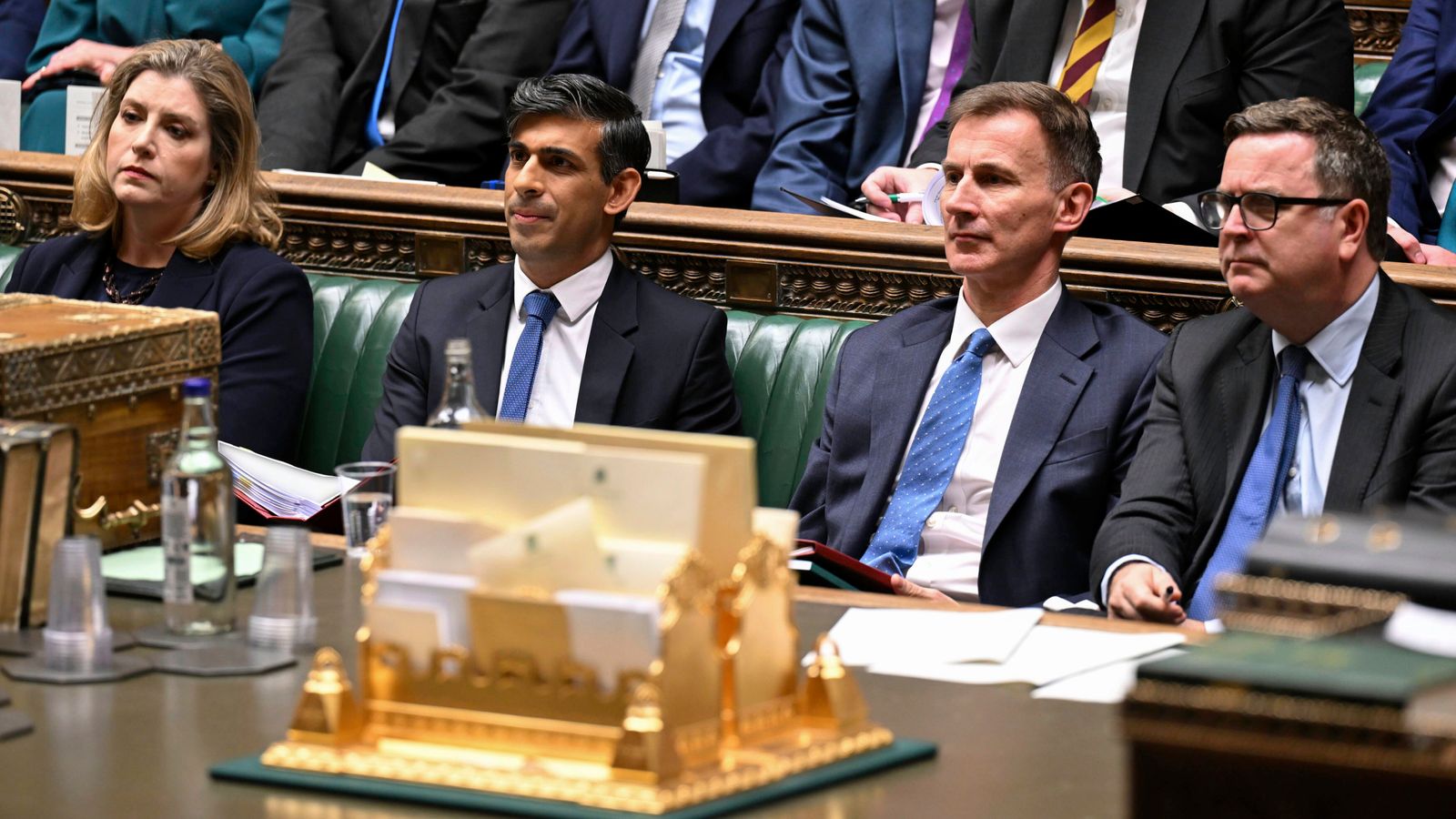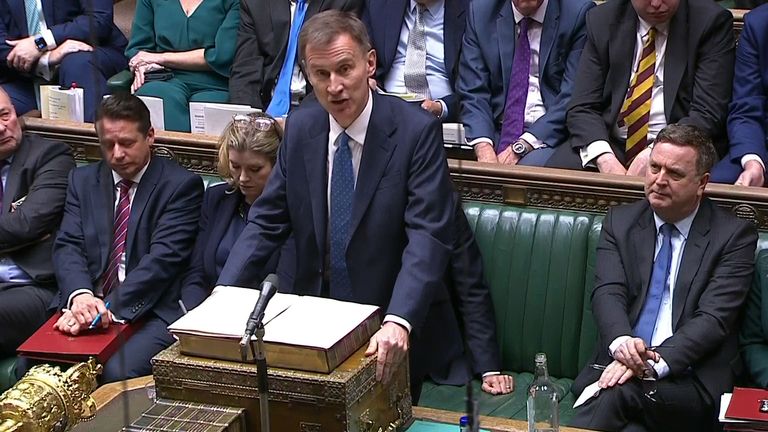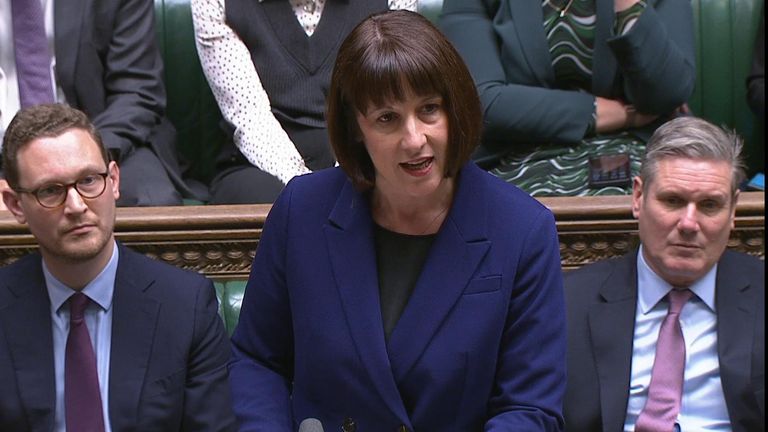Autumn Statement 2023: Jeremy Hunt admits it will ‘take time’ to bring taxes down


Jeremy Hunt has acknowledged it will “take time” to bring taxes down, but he had “made a start” with his autumn statement.
The chancellor admitted the tax take – the total the government collects – stood at £45bn, outstripping the benefits of the cuts announced in the fiscal event.
The headline-grabbing announcement in Mr Hunt’s statement was that the main 12% national insurance rate would fall to 10% from 6 January – saving those on an average salary of £35,000 more than £450 a year.
Politics news – latest: Tory MPs ‘convinced’ autumn statement hints at timing of next election
Please use Chrome browser for a more accessible video player
1:26
Chancellor announces national insurance cut
The chancellor also abolished Class 2 national insurance payments for the self-employed to show the government “values their work”.
Mr Hunt sought to portray the autumn statement as a tax giveaway in light of the NI cuts – worth £9bn – but economists have pointed out that the overall tax burden remains at a record high because of the continued freeze on tax thresholds.
In an interview with Sky News’ political editor Beth Rigby, the chancellor conceded that “taxes go up from freezing thresholds”.
He said: “If you’re trying to say that it’s going to take time to get taxes down to the level they were, then I agree.
“But what I said was when it was responsible to do so, when it wouldn’t affect inflation, I would make a start.
Advertisement
“We’ve done that today and we are a party that believes if we want to grow the economy, then we need to have a lightly taxed economy, and we’ve made a step which, by the way, for someone on average earnings is going to be about £450 – so it’s not insignificant.”
Please use Chrome browser for a more accessible video player

2:06
UK growth ‘a dead end’ under Tories
Mr Hunt was asked whether he could call the statement a tax giveaway given that the £45bn tax take “dwarfed” the effects of the national insurance cuts.
“Have you taxed more, or cut taxes more?”
“We have put taxes up because it was the right thing to do to support families,” Mr Hunt replied.
Pressed again on whether taxes have been going up or down under the government, the chancellor said: “Taxes have gone up and we are starting to bring them down.”
Mr Hunt also denied that taxes had gone up in part to “clear up the mess” of the previous government under Liz Truss, pointing instead to the “once-in-a-century pandemic” and “energy shock” caused by Russia’s invasion of Ukraine.
Read more:
Top announcements at a glance
See if you are better or worse off
Please use Chrome browser for a more accessible video player

4:22
Analysis: Autumn Statement 2023
Forecasts from the Office for Budget Responsibility, released after the statement, showed taxes are still trending upwards – with a post-war high of 37.7% set to be reached by 2028/29 under the current government plans.
The body put this down to so-called “fiscal drag” – with people drawn into higher tax brackets as their pay increases.
Click to subscribe to the Sky News Daily wherever you get your podcasts
According to the OBR, by 2028/29, frozen thresholds will result in nearly four million additional workers paying income tax – with three million more moved to the higher rate and 400,000 more paying the additional rate.
Mr Hunt was rumoured to have considered income tax cuts in the autumn statement, but it is thought he may defer this to the March budget next year.
Asked whether he would use that opportunity to cut income tax, he replied: “If it’s responsible to do so, if we can do so without increasing borrowing, then of course, as a Conservative, I would like to bring down the tax burden – but I will only do so in a responsible way and one that doesn’t fuel inflation after the great success we’ve had in halving it.”